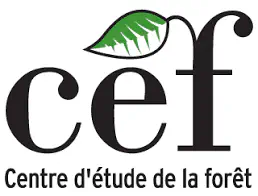📊 🏆 Long-term impacts of uneven-aged development on the quantity and fragmentation of old-growth forest in a landscape (CEF)

🏆 This presentation won the “Best presentation” award for this annual symposium of the CEF.
Uneven-aged management is currently seen by many forest ecologists as an extensive management approach when compared to more traditional even-aged methods, offering interesting compromises between timber production and other important ecosystem services. But uncertainties remain concerning its impacts on longer time periods and broader spatial scales, where harvesting activities and forest roads construction can impact the composition and fragmentation of the landscape.
Consequently, we explored the impacts of uneven-aged management at the landscape scale and on a planning horizon of 150 years by using the forest landscape model LANDIS-II, along with an extension allowing for the dynamic simulation of the forest road network. We simulated a landscape containing boreal forest in the Mauricie Region of Québec with 30 different management scenarios where we varied the use of uneven-aged management methods, the level of aggregation of the harvested areas, and the presence of pre-existing forest roads.
Our results show that when compared with even-aged management, uneven-aged management increased both the quantity of forest roads and their operational costs, the fragmentation per se of the older forests of the landscape, and the quantity of forest with older tree cohorts. In addition, differences of fragmentation of the landscape between even-aged and uneven-aged management were lower in the northern region containing more boreal forest, as forest fires tended to fragment the old forests of the landscape in spite of any forest management.
We conclude that selecting uneven-aged over even-aged management should be closely linked to how fragmentation and habitat are defined, to the patterns of fragmentation as a result of natural disturbances, and to the perceived effects of fragmentation per se in the landscape. We also conclude that aggregation of the harvested areas could help to reduce the negative impacts of uneven-aged management, but that they are unlikely to entirely compensate them.